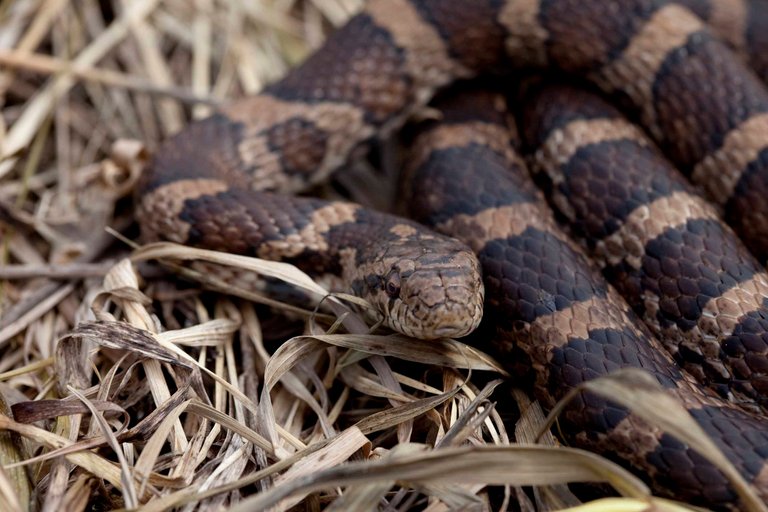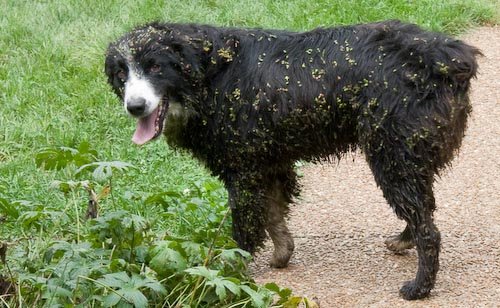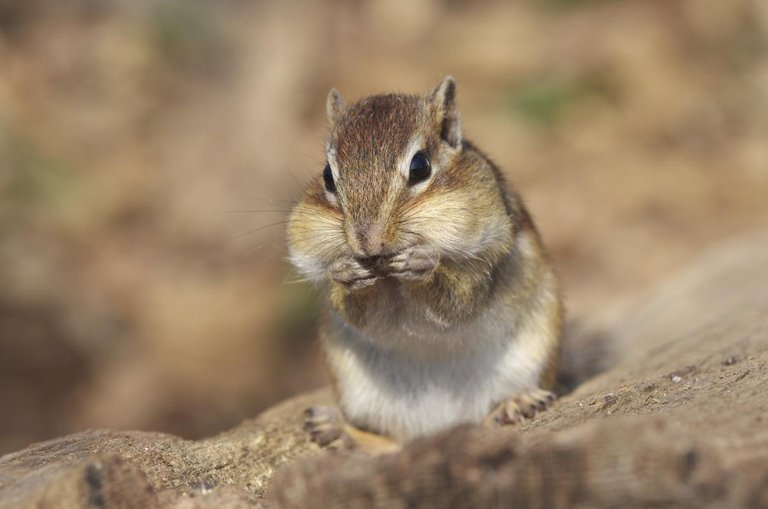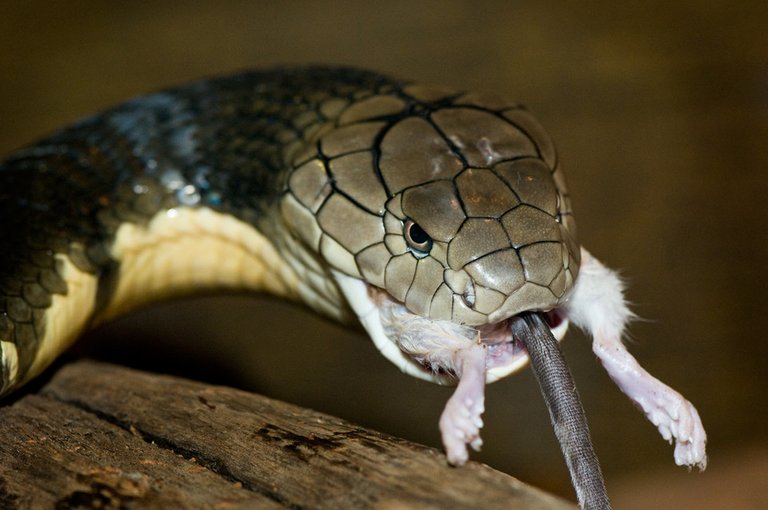Snakes are not everyone's favorite species, however we humans rely on these slithering reptiles far more than most people realize. They are incredibly beneficial predators, controlling pest populations of insects, mice and other rodents. They remove thousands of ticks from the environment every year, potentially saving us from nasty diseases like Lyme disease. Their venom (and poisons) have an incredibly array of pharmaceutical uses, saving thousands of lives around the world each and every year. However, it is not just humans that heavily rely on these misunderstood animals; herpetologists from Cornell University have revealed that plants owe a lot of their success to snakes, and these "ecological engineers" help shape the environment around them.

Plants often rely on animals to spread their seeds. Some seeds are hitchhikers, clinging to the external fur of mammals or birds' feathers. These seeds are later dropped off and are allowed to grow some distance from their parent. Other seeds have evolved to pass through animals intact; animals injest these seeds when they feed on fruit, and by the time the seeds are expelled, the animal has likely wandered some distance away. These methods of dispersal are incredibly important; in addition to colonizing distant locations, this allows allows some seeds to reach sites that offer less competition from other plants. Of course, how these seeds are spread and their success largely impacts the ecosystem.

Rodents are often critical to the process but at a potential cost. They are able to stash large quantities of seeds in their cheek pouches enabling them to move large numbers of seeds away from the parent tree...except there is one problem. The rodents aren't just giving these seeds a free ride, they intend to eat them, and many seeds are destroyed by these small animals as they chew them apart. However, the rodents themselves are often eaten by larger predators while still holding their stash of seeds; the predators then serve as secondary dispersers of the seeds having saved them from the ravenous rodents.

Snakes, of course, are one of these critical rescuers as they are an important rodent predator. Harry W. Greene, a Cornell University herpetologist, found that seeds remain intact through the digestive system of rattlesnakes (no small feat when you consider that these animals can digest skin, bones, claws, and teeth!). He and his team examined 50 snakes, within 45 of which they found the remains of rodent prey. The really impressive find was the seeds: a total of 971 seeds were found in the gastrointestinal tracts of the reptiles. Even more impressive, not only were the seeds surviving through the digestive tract, some were actually germinating inside the snakes' colons!

The team plans to further their study investigating how other species affect plant life in such a profound way. With the majority of the world's snakes feeding heavily on rodents, it is incredibly likely that these animals are an essential part of plant reproduction and locomotion.
"[Snakes] should be studied and appreciated as seed rescuers and secondary dispersers, perhaps even ecosystem engineers, in addition to their recognized predatory functions." -Source
Article Link: https://www.sciencedaily.com/

Reading this, it made me wonder: is there any snake species that is herbivorous - at least partially? I know it seems unlikely, but I have found that there is a exception to almost any rule in nature.
Did you ever hear anything like that about a snake?
Actually, that rule may be the one constant for snakes! There actually aren't any herbivorous or even omnivorous snakes in the world known to science (and I think it is highly unlikely that a herbivorous snake is yet to be discovered). Plant matter has been found in the droppings of snakes, but lab studies have concluded that this was by accident and snakes did not readily eat plants for the sake of eating plants (cottonmouths occasionally ate seaweed for no other reason than it smelled like fish, but they simply aren't capable of the digestion of vegetation).
This article by herpetologists from British Columbia delves a little further into the matter.
http://snakesarelong.blogspot.com/2012/10/why-are-there-no-herbivorous-snakes.html
Thanks for the comment! The more that I think about this, it would be a great post in the near future!
Thank you for answering! I sort of expected it, since I never heard of any herbivorous snakes - but I'm no expert.
And yet its surprising, because there are so many different snake species and not all of them are big venomous beasts. I mean, I wouldn't expect them to eat grass or other green stuff, but perhaps fruits or seeds with a high fat content or so.
But well, it seems they managed to survive without going in that direction.
The same goes for ants. Myrmecochory is the term used for ant seed dispersal. These animals we call pests or run away from might be indirectly saving our lives.
I took an entomology course in college, but there's so much to cover in a single semester, we didn't examine seed dispersal in too much depth (kind of a shame since it's so important). May be work breaking out my old textbook for a good read!
haha, yes for sure. I majored in botany and geology. I kindof wish that I did zoology instead of geography haha. Botany is absolutely fascinating though. Keep up your posts, I like the informative posts more than the: "look it's me again" posts haha.
this creature are amazing and are important in the balance of nature
Nice post
Scientists can say whatever they want, I can find nothing good about a snake.
Not everyone likes snakes and that is okay. But even if we dislike them, we have to understand their role and how they are important to the ecosystem. And they are incredibly good for people (yes there are deadly ones out there, but the good drastically outweighs the bad!). Here is a post I wrote last year that delves just a little bit into how we rely on snakes, often without realizing:
https://steemit.com/science/@herpetologyguy/why-do-we-need-snakes
We can't let our fear or hatred for something blind us to the good it does.
I respond to our friend's comments, and I agree with your post, because the snake will not be in our mind if he is not in the gangu, because the act of humans who destroy their place of residence, which makes angry snakes against humans,
This mindset is what causes species to be poached and driven to extinction. Look at the rhino for example, people say that rhinos will kill you if you encounter them in the wild, or we need their ivory for medicine, and therefore use this as some sort of justification for killing them.
Yeah that devil called snake. They are capable of such
wow.. you look very brave with snakes, whether you are also animal lovers.
be careful, the snake is very poisonous
Very good
Congratulations!
This post has been voted Good! Upvoted and resteemed on Salt Water.
Click @alphawhale to have your best post upvoted and resteem free.
Read some of our quality resteemed here
&
Click here to read about @alphawhale
I don't often think of seed dispersion happening through digestion. Nice post!!
Great post. I actually learned something new. Resteeming.
Takut
the people distrust of the snakes in my opinion is due to religious beliefs, "according to the bibilia it is bad" for that reason it is not repeated nor valued as an animal that does not contribute many benefits !!
Great post. I was just reading about this very concept with regards to Mauritius. Every player has its role! Often in ways that are not obvious, like here with the snakes.
https://steemit.com/poetry/@annyvery1/evil